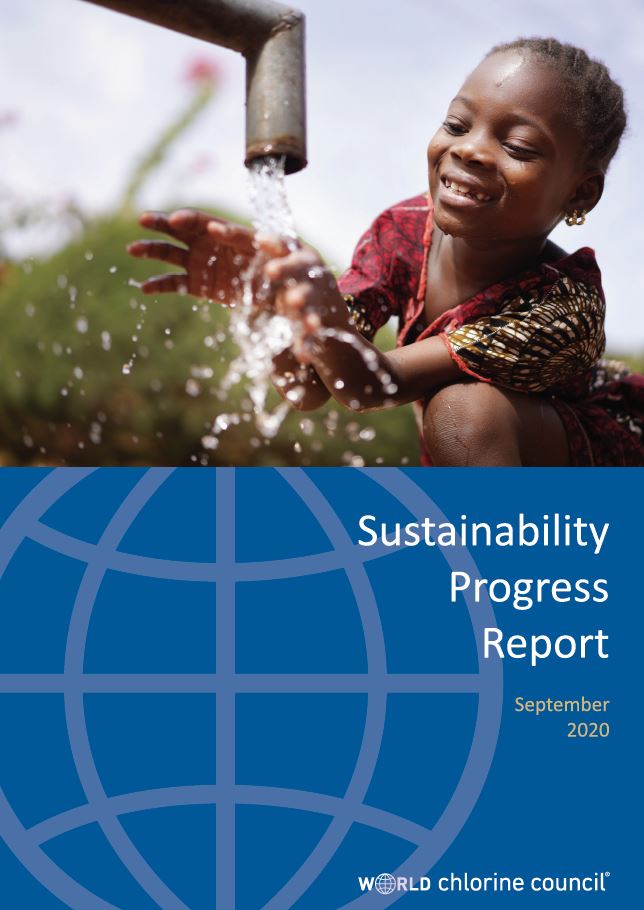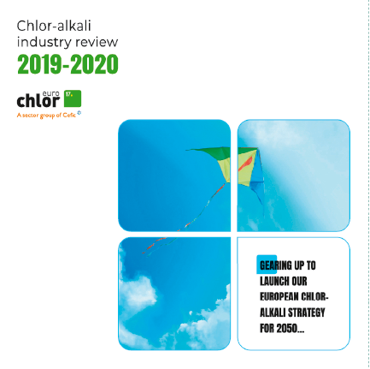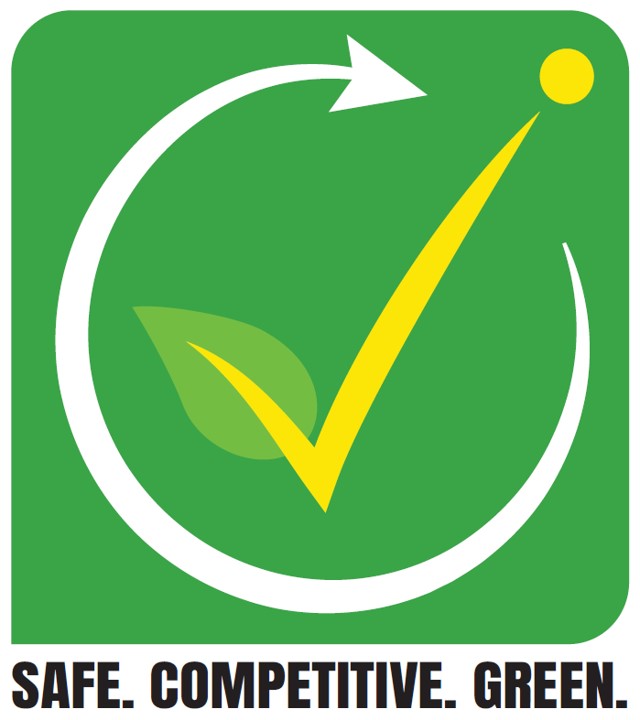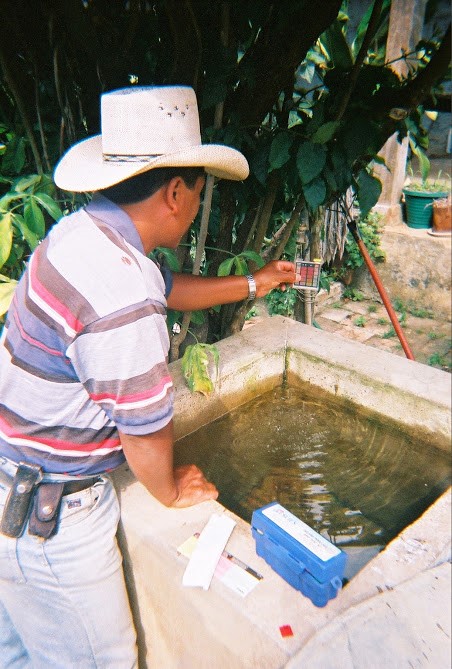Receive Email Updates
Euro Chlor (the European chlor-alkali association) has just launched three new trees detailing the many uses of chlorine, caustic soda and caustic potash. In these new interactive tools, you can click on the products, their uses and sectors of uses. This comprehensive scientific and factual resource, available in digital and print format, shows the rich diversity of the chlor-alkali applications and end-products.
Click on the links below to access them or to download and print your own copy.
Each year on the 22nd day of March, the world community highlights a water theme to mark World Water Day. This year’s focus is on valuing water. Good quality and safely delivered drinking water, made possible by the time-tested technologies of filtration and chlorine disinfection, for example, is essential to the growth of healthy and prosperous communities. Universal access to safe drinking water is an integral element of the United Nations’ 2030 Agenda for Sustainable Development. Sadly, according to a 2017 report, an estimated 2.2 billion people around the world lacked safely managed drinking water services. Through the hard work of the world community, that statistic could be vastly improved by better protecting natural water sources and installing adequate treatment infrastructure. It is difficult to assign a value to something so fundamental and life-giving as safe drinking water…until you try to imagine your life without it.
In an effort to expand its emergency response training and outreach, WCC member the Chlorine Institute (CI) hosted several Spanish language webinars over the past six months. In October 2020, CI partnered with TRANSCAER to host the first webinar which drew 122 total attendees from Mexico, Colombia, Chile, and other countries. The second CI/TRANSCAER webinar was held in December 2020 and had 246 participants.
CI also partnered with Ferromex, a rail consortium that operates the largest railway in Mexico, and CAWASA (Caribbean Water and Sewerage Association) to host four more Spanish webinars in February and March of 2021. The four webinars trained a combined total of 308 attendees.
All webinars were broken down into a two-part series on “Physical and Chemical Properties of Chlorine” and “Chlorine Emergency Response.” Participants provided nothing but positive feedback. One participant tweeted, “Thank you for the kind invitation, it was a great training event!” CI looks forward to hosting more of these events in the future and continuing to provide this critical training to Spanish speakers everywhere.
Hydrogen is an important chemical for the climate neutral economy. Currently Europe is defining screening criteria for hydrogen but does not yet consider chlor-alkali electrolysis – a green process.
The European chlor-alkali sector produces some 0.27 million tonnes of hydrogen as a by-product of the highest purity. For this, chlor-alkali electrolysers use less electricity and emit less CO2 to produce 1kg of hydrogen than water electrolysis. Euro Chlor has developed this illustrative infographic to highlight the potential of the chlor-alkali sector as a green hydrogen producer for Europe.
Learn more about hydrogen from European chlor-alkali production.
On 17-18 November, the WCC Global Safety Team held its online Safety Seminar. The seminar contained several presentations from the members. In total, around 80 people from all global regions attended one or both events.
The Seminar included topics such as Jack Rabbit and the effect on the modelling of chlorine releases, the WCC Cardinal rules, accidental mixing, lessons learned, etc. The presentations have been sent to the participants in addition to the recordings from the sessions for onward distribution to those who could not attend. If you are interested in the topics presented, please send an email to Ton Manders, Euro Chlor Technical & Safety Director.
 Chlor-alkali chemistry is essential to help achieve many of the United Nation’s Sustainable Development Goals (SDGs). The 17 SDGs are at the heart of global efforts to build a better world for people and our planet by 2030. Adopted by all United Nations Member States in 2015, the SDGs are a call for action by all countries to promote prosperity whilst protecting the environment. As such, the World Chlorine Council (WCC), has prepared a new report that details how its members, and chlor-alkali chemistry in general, help to meet these important targets.
Chlor-alkali chemistry is essential to help achieve many of the United Nation’s Sustainable Development Goals (SDGs). The 17 SDGs are at the heart of global efforts to build a better world for people and our planet by 2030. Adopted by all United Nations Member States in 2015, the SDGs are a call for action by all countries to promote prosperity whilst protecting the environment. As such, the World Chlorine Council (WCC), has prepared a new report that details how its members, and chlor-alkali chemistry in general, help to meet these important targets.
The new report discusses which SDGs are supported by chlor-alkali (chlorine and caustic soda/ potash) chemistry and is available from the WCC website. Further details can also be found at https://worldchlorine.org/sustainability/.
The WCC brings chlor-alkali experts together from around the globe to discuss, partner, and further global progress toward sustainability and achieve the SDGs, among many other topics.
The 2019-2020 Chlor-alkali Industry Review has just been launched at https://chlorineindustryreview.com/ . This publication, first produced more than 25 years ago, covers the most important industry information from the past year with key stories, updates and figures on the topics of Safety, Competitiveness, Climate & The Environment, Product News, Collaboration and Outreach and Communications.

As in previous years, a summarised version of the review is also available in print version that has been sent by post to all Euro Chlor members and partners, will be distributed at key events and can be downloaded as a PDF from the bottom of https://chlorineindustryreview.com/.
For more information, contact Euro Chlor Communications Manager Catherine Birkner at cab [at] cefic.be.
During this time of COVID-19 restrictions, as everyone is finding new ways to connect and learn virtually, the Chlorine Institute (CI) has several prerecorded webinars available on its website which cover chlorine emergency response. While CI is unable to hold emergency response training events at this time, these webinars are free to the public and serve as safety training resources. They include a Chlorine Chemical & Physical Properties Video and a Chlorine Emergency Response Video (also available in Spanish).
Instructor materials for the webinars are also available for people interested in conducting the training themselves with employees, customers or local first responders. In addition, CI has videos covering chlorine emergency response in the CI Bookstore (all are free to stream or download).
Although CI was unable to conduct any in-person training events this year, plans are in progress to hold events next year when it is safe to do so. The CI has a new training flatcar to add to the existing training tank car for future emergency response training.

More recently, it has become clear that there is a need to expand CI’s CHLOREP network. CI is currently taking steps to expand CHLOREP into Mexico so that North America is entirely covered by a group of chlorine producers and re-packagers who can be deployed to respond to chlorine emergencies. With this in mind, CI is translating multiple emergency response resources, such as a First Responder Video, the CHLOREP Handbook and Emergency Response Kit Booklets into Spanish and hosting multiple emergency response webinars in Spanish.
Euro Chlor has just released its “Mid-Century Strategy for a Sustainable Chlor-Alkali Industry (MCS)” that defines what the sector aims to look like by 2050, as well as the direction planned to ensure that this safe, competitive and green European chlor-alkali industry will be here for the benefit of Europe in 2050.

The work started in the run up to Euro Chlor’s third 10-year Sustainability Programme (2021-2030). The outcome was Euro Chlor’s inspiring new vision “Towards a safe, competitive and green European chlor-alkali industry” and mission “to be a safe and competitive supplier of chlor-alkali products and an integral part of Europe’s climate neutral and circular economy transition”. Click here for more details.
Originally planned at Euro Chlor’s Technology Conference last May, the launch of the MCS was postponed to the Association’s Annual General Meeting on 11 September 2020 due to COVID-19. The Technology Conference www.eurochlor2021.org will now be held on 4-6 May 2021 and give an update on the MCS progress.
More information can be found at www.eurochlor.org/mcs, which, along with #eurochlorMCS, will be updated with progress.
 The World Chlorine Council has partnered with Andrew Robertson, P.E. of Water Engineers for the Americas to produce a set of three, easy-to-use cistern disinfection posters.
The World Chlorine Council has partnered with Andrew Robertson, P.E. of Water Engineers for the Americas to produce a set of three, easy-to-use cistern disinfection posters.
The posters provide simple, pictogram directions for cleaning and disinfecting cisterns, which are vats used to collect and store drinking water in remote areas and developing countries.
The three posters provide stepwise instructions for cleaning and disinfecting cisterns using sodium hypochlorite (bleach), calcium hypochlorite (“HTH”), and sodium dichloroisocyanurate (“NaDCC”), respectively.
Mr. Robertson, who volunteered his time to help develop the posters based on his extensive field experience, stated, “From hurricane relief to COVID, the need for emergency disinfection of household water supplies is now more acute than ever before. The instructional posters provided by the World Chlorine Council provide invaluable guidance to families in need, regardless of what language they speak”.
The posters may be downloaded for free here.
Photo courtesy of Andrew Robertson, P.E.